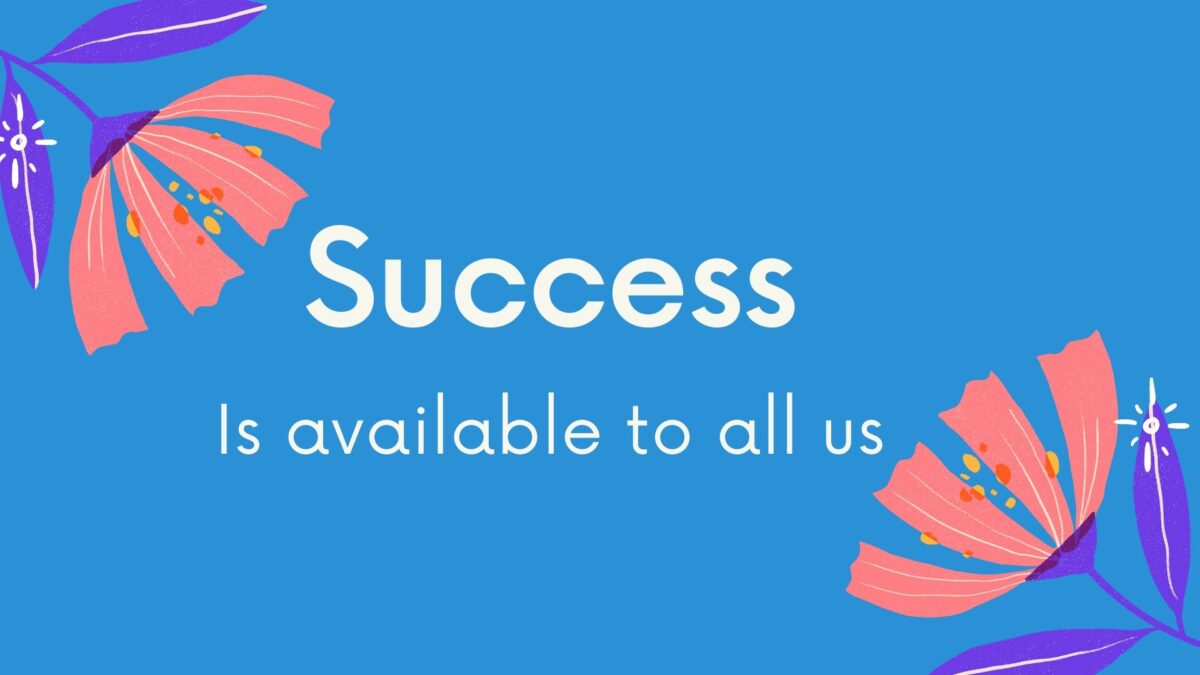Success has many definitions.
Consider this: an Uber driver who works 4 hours a day and spends the rest of their time with friends and family, visiting the park, enjoying a drink, relaxing, and watching Netflix might be considered more successful than an attorney who works 10 hours a day, six days a week, barely spends time with family, and is always glued to their smartphone.
Since this is a money blog, we will explore success from a financial standpoint. The goal is to earn more money without becoming a slave to it or sacrificing your well-being.
When You Are a Teenager
As a teenager, success means having a well-rounded life. If you focus only on getting straight A’s at the expense of everything else, you miss out on some of the most formative years of your life.
School is important, but so are sports, first romantic relationships, social connections, and other activities like music, debate teams, and volunteering. Try many things. Avoid drugs and drink in moderation.
College Life
Approach college as an investment, especially if you are taking on debt.
For instance, if you’re studying accounting or engineering and know that job offers will come your way even before graduation, student debt can be manageable.
However, if you’re pursuing a field that may not offer immediate job prospects, consider avoiding debt. Take fewer classes each semester, work part-time, or get a summer job. Avoid debt as much as possible.
One of society’s biggest problems is student debt. I have met people who are still paying off their student loans well into their 40s. Paying for an education that doesn’t offer a good return is consumer debt, not an investment.
Just like in high school, college is a time to explore new activities. I became a dance teacher thanks to a university-level social club. We danced for fun, and as I improved, I eventually taught others.
Adulthood
Many equate life success with having high-profile careers like medicine, law, or engineering. This can be true, but if you choose such a career due to societal or parental pressure and aren’t happy, then, even with a high income, you’re not truly successful. You’ve sold your happiness and conformed to the social script.
Success, in my view, is doing something you love and making a living from it.
For example, I worked as a dance teacher for nearly 15 years. It didn’t bring much money, but the joy it gave me more than made up for it.
Don’t misunderstand me: if you love being a doctor or lawyer, pursue it wholeheartedly. You’ll be rewarded twice—doing something you love and being well-compensated for it.
How to Succeed Financially with a Low-Paying Career
Suppose you are a photographer or music teacher and don’t have frequent gigs. Ideally, find a job that lets you pursue your passion during your free time. For instance, you could drive for Uber or bartend for a few hours and teach music lessons in the evening. This balance allows you to make a living while doing what you love. Even with this compromise, I would consider it a successful life. What I wouldn’t consider successful is working a job you despise just to retire and start pursuing your passion. That’s not a compromise I’d recommend.
Always Set Money Aside
I believe in the power of compound interest. While not everyone desires to be rich, we all strive for financial independence. We want to work because we choose to, not because we have to.
In North America, I believe that everyone has the potential to achieve financial independence.
No matter your income, you can always save something. I always suggest saving at least 10% of your income.
“A part of all you earn is yours to keep.” – The Richest Man in Babylon
Saving means making sacrifices at times, but think about the power and flexibility it offers.
By saving, you aren’t depriving yourself; you are buying freedom and options.
What’s Your Definition of Success?
What about you? How do you define success? What makes one person successful and another not? Please share your thoughts in the comments.
Other personal finance blog posts

Comments
9 responses to “Success Is Available to All of Us – Just Reach Out and Grab It”
[…] What’s success to you? […]
[…] be easy to continue through life worrying about the day-to-day issues. Long-term plans and ideas of future success, might get lost in the business of household chores and the tasks of the near future. However, if […]
[…] What’s success to you? […]
[…] trouble is, of course, that success isn’t always as sweet as we imagine. Though goals like these are helpful when they’re distant, […]
[…] set a budget and just go each week or each month with what is leftover. That is not taking control! Setting a budget doesn’t even take that long, so there shouldn’t be any excuses. Look at what you earn each month […]
[…] doubt yourself. And when this happens, it can often hold you back. But when you know that you want success, and you want the financial reward that goes with it, you can’t let that happen. If you let […]
[…] What’s success to you? […]
[…] best investment you can ever make is in your future,” that’s what Tucker Hughes told us, and he should know […]
[…] What’s success to you? […]